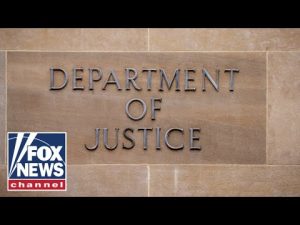In a world where debates about healthcare and wealth often create more confusion than clarity, a recent discussion on a conservative news channel brought several important issues to the forefront. The focus of this lively exchange was not just the financial status of the United States, often hailed as one of the wealthiest countries in the world, but a deeper examination of healthcare philosophies and the intertwined nature of health, food, and wellness.
The conversation kicked off with a tough question about America’s economic prowess. Yes, the U.S. boasts significant wealth, but a closer examination reveals the heavy burden of debt. While some might argue that China’s economic statistics are inflated, the discussion highlighted a vital point: American prosperity and its complexities demand more than surface-level answers. This idea underscores how money can often mask deeper issues that dwindle beneath the surface, much like trying to dig for gold in a landfill.
Enter Todd Nettleton, a man on a mission to shed light on the persecution of Christians worldwide and a bearer of a powerful message through his book, *Faith is Forbidden*. Nettleton’s work reminds readers that while discussions of wealth and healthcare are pressing, they sit against a backdrop of suffering and faith. As the discussion moved towards the intersectionality of life, health, and policy, it became clear that answers about healthcare would not fit neatly into any box.
The topic shifted to healthcare—specifically, the concept of it being a “right.” One panelist argued passionately against universal healthcare, citing the mess created by previous attempts at such systems. He pointed out the struggles faced by Native American reservations and the Veterans Affairs (VA) healthcare, saying they illustrate the challenges of government-run hospitals. This line of thinking reflects a broader conservative viewpoint that emphasizes personal responsibility and the importance of hard work over government intervention. After all, when one’s health is on the line, waiting months to see a doctor is hardly a gratifying prospect.
One particularly captivating point to emerge from the discussion was the emphasis on food as an essential factor in health. The panel noted that a significant portion of health issues stems from lifestyle choices, particularly eating habits and physical activity. The notion that food can act as medicine or poison is especially poignant. This perspective champions not just immediate fixes at hospitals but preventive measures that begin in the kitchen. Those who have visited Europe may attest to the nutritional superiority of their agricultural practices, which sparked a bit of banter among farmers back home as they pondered the nature of their soybean yield.
Perhaps the most thought-provoking aspect of this dialogue was the distinction made between “healthcare” and “life-saving care.” While it’s agreed that everyone should have access to emergency treatment, the discussion revealed that chronic health issues are more complex. The American healthcare system excels in acute care—think of that heart attack you could survive at your local ER—but it often falls short on less immediate, chronic conditions that require a holistic approach. The advocate’s perspective was clear: treating chronic diseases involves more than just band-aids and pills. It calls for a fundamental shift—a revolution in how society views health from the inside out.
In conclusion, this spirited conversation serves as a reminder that while debates about wealth and healthcare tend to dominate headlines, the intersections of faith, lifestyle, and systemic wellness deserve attention. Todd Nettleton’s work can be a beacon in these discussions, encouraging individuals to consider the broader implications of their health choices and the underlying values that guide societal norms. After all, when pondering the landscape of American life, it might be wise to remember: health starts with what we put on our plates!







